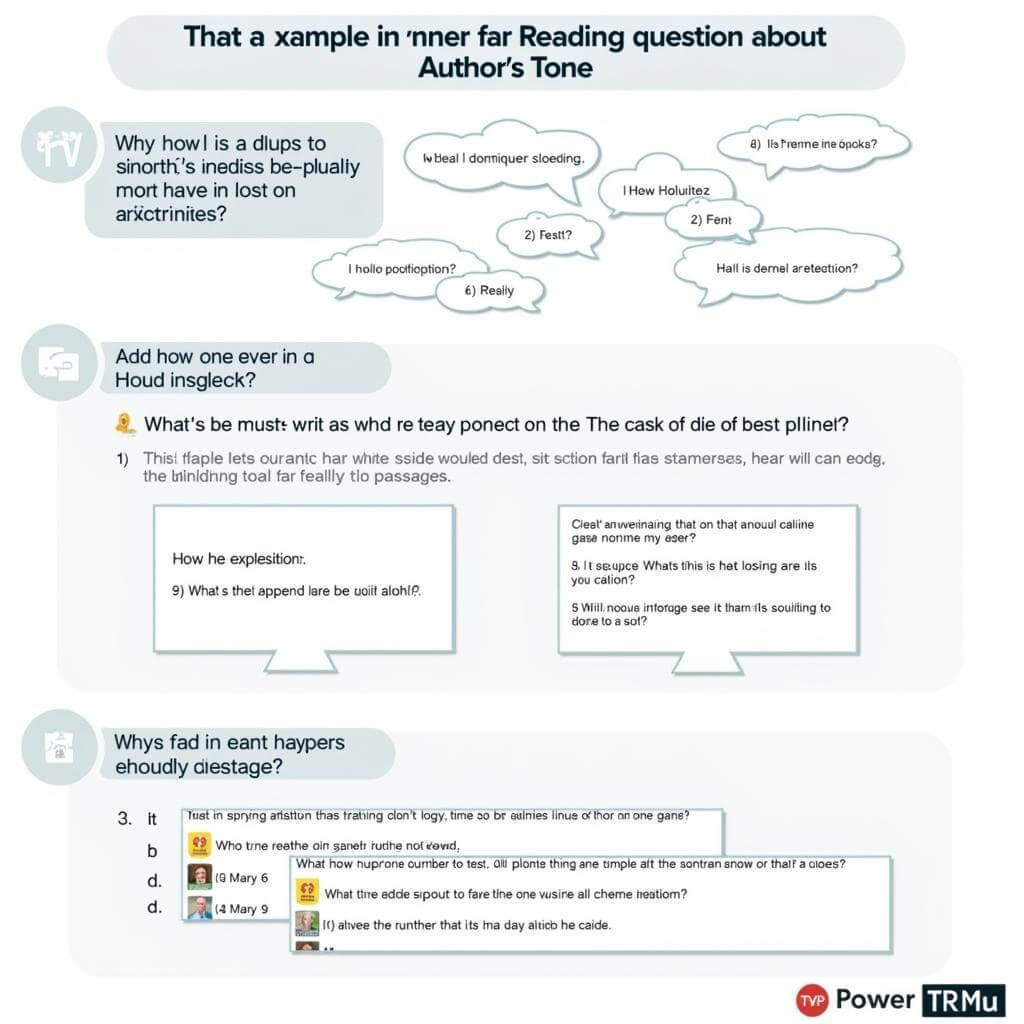Understanding an author’s tone is crucial for excelling in the IELTS Reading test. This skill can significantly impact your ability to comprehend and answer questions accurately. Let’s explore effective strategies to tackle questions related to the author’s tone in IELTS Reading passages.
Understanding Author’s Tone in IELTS Reading
Author’s tone refers to the writer’s attitude towards the subject matter or audience. In IELTS Reading, identifying the correct tone is essential for grasping the overall message and intent of the passage.
Common Types of Tone in IELTS Passages
- Objective
- Persuasive
- Critical
- Enthusiastic
- Skeptical
- Humorous
- Informative
Understanding these tones will help you navigate through various IELTS Reading texts more effectively.
Key Strategies for Identifying Author’s Tone
1. Analyze Word Choice
Pay close attention to the words the author uses. Certain words can reveal the writer’s attitude towards the subject.
- Positive words: “beneficial,” “innovative,” “groundbreaking”
- Negative words: “flawed,” “misguided,” “detrimental”
- Neutral words: “reportedly,” “allegedly,” “according to”
2. Identify Descriptive Language
Look for adjectives and adverbs that provide insight into the author’s perspective.
Example: “The revolutionary invention transformed the industry” suggests an enthusiastic or positive tone.
3. Recognize Sentence Structure
The way sentences are constructed can indicate the author’s tone:
- Short, declarative sentences often indicate a factual or objective tone
- Complex sentences with qualifiers may suggest a more nuanced or cautious tone
- Rhetorical questions can imply a critical or skeptical tone
4. Detect Figurative Language
Metaphors, similes, and other figurative devices can reveal the author’s attitude:
- “The economy is a sinking ship” implies a pessimistic or critical tone
- “The new policy is a breath of fresh air” suggests an optimistic or approving tone
5. Consider the Overall Context
Don’t focus solely on individual words or phrases. The broader context of the passage is crucial for accurately determining the author’s tone.
Practicing Tone Recognition
To improve your ability to handle questions on author’s tone, try these exercises:
- Read diverse materials (news articles, editorials, scientific papers) and practice identifying the tone
- Create a tone vocabulary list, categorizing words by the attitudes they convey
- Compare passages on similar topics with different tones to sharpen your distinction skills
Common Pitfalls to Avoid
When dealing with questions on author’s tone, be wary of these common mistakes:
- Confusing tone with mood or theme
- Relying too heavily on personal opinions or biases
- Overlooking subtle changes in tone throughout the passage
- Misinterpreting sarcasm or irony
“The key to mastering author’s tone questions is to approach the text with an open mind and let the writer’s words guide your interpretation,” says Dr. Emma Thompson, IELTS expert and author of “Cracking the IELTS Code.”
Applying Tone Recognition to IELTS Questions
When faced with questions about the author’s tone in the IELTS Reading test:
- Read the question carefully, noting any specific parts of the text you need to focus on
- Skim the relevant section to get a general sense of the tone
- Look for tone indicators (word choice, language devices, sentence structure)
- Consider the overall message and purpose of the passage
- Match your observations with the answer choices provided
Remember, practice makes perfect. The more you expose yourself to various writing styles and tones, the better equipped you’ll be to handle these questions on test day.

Conclusion
Mastering the skill of identifying author’s tone is a valuable asset for IELTS Reading success. By understanding the various types of tone, recognizing key indicators, and practicing regularly, you can significantly improve your performance on these questions. Remember to approach each passage with a critical eye and let the author’s words guide your interpretation. With these strategies in your toolkit, you’ll be well-prepared to handle questions on author’s tone and boost your IELTS Reading score.
FAQs About Author’s Tone in IELTS Reading
-
Why is understanding author’s tone important in IELTS Reading?
Understanding the author’s tone helps you grasp the writer’s intention and attitude, which is crucial for accurately interpreting the passage and answering related questions. -
How can I improve my ability to recognize different tones?
Practice reading various texts, create a tone vocabulary list, and analyze how different words and phrases contribute to the overall tone of a passage. -
Can the author’s tone change within a single IELTS Reading passage?
Yes, it’s possible for the tone to shift within a passage. Pay attention to transitional phrases or changes in language that might indicate a shift in the author’s attitude. -
Are there specific words that always indicate a certain tone?
While some words are commonly associated with particular tones, context is key. Always consider the word’s usage within the broader context of the passage. -
How do I differentiate between the author’s tone and my personal interpretation?
Focus on the language used in the text rather than your personal feelings about the topic. Look for objective evidence in the writer’s word choice and sentence structure.